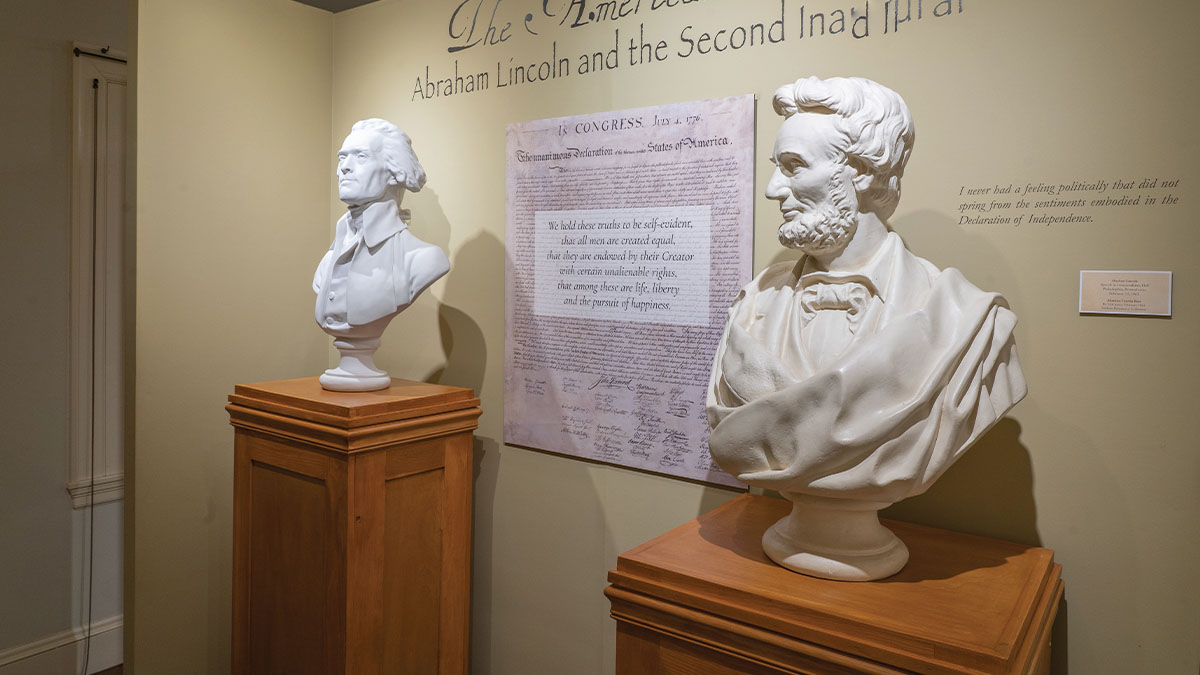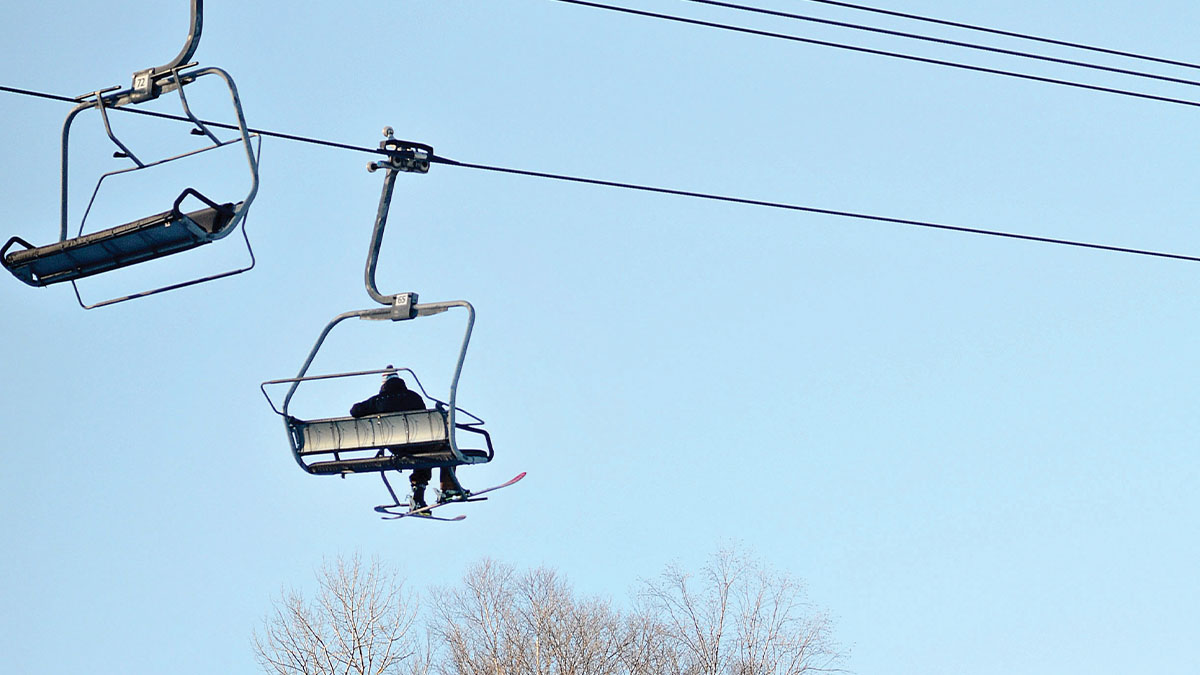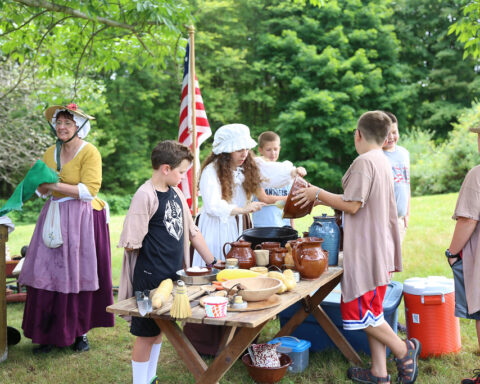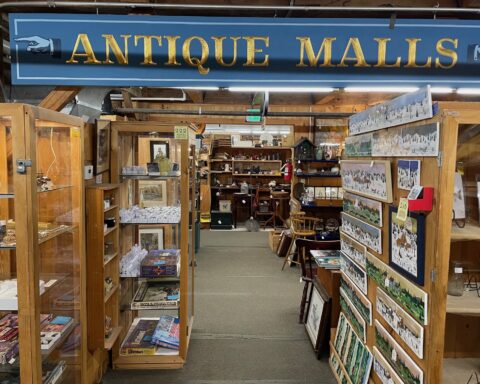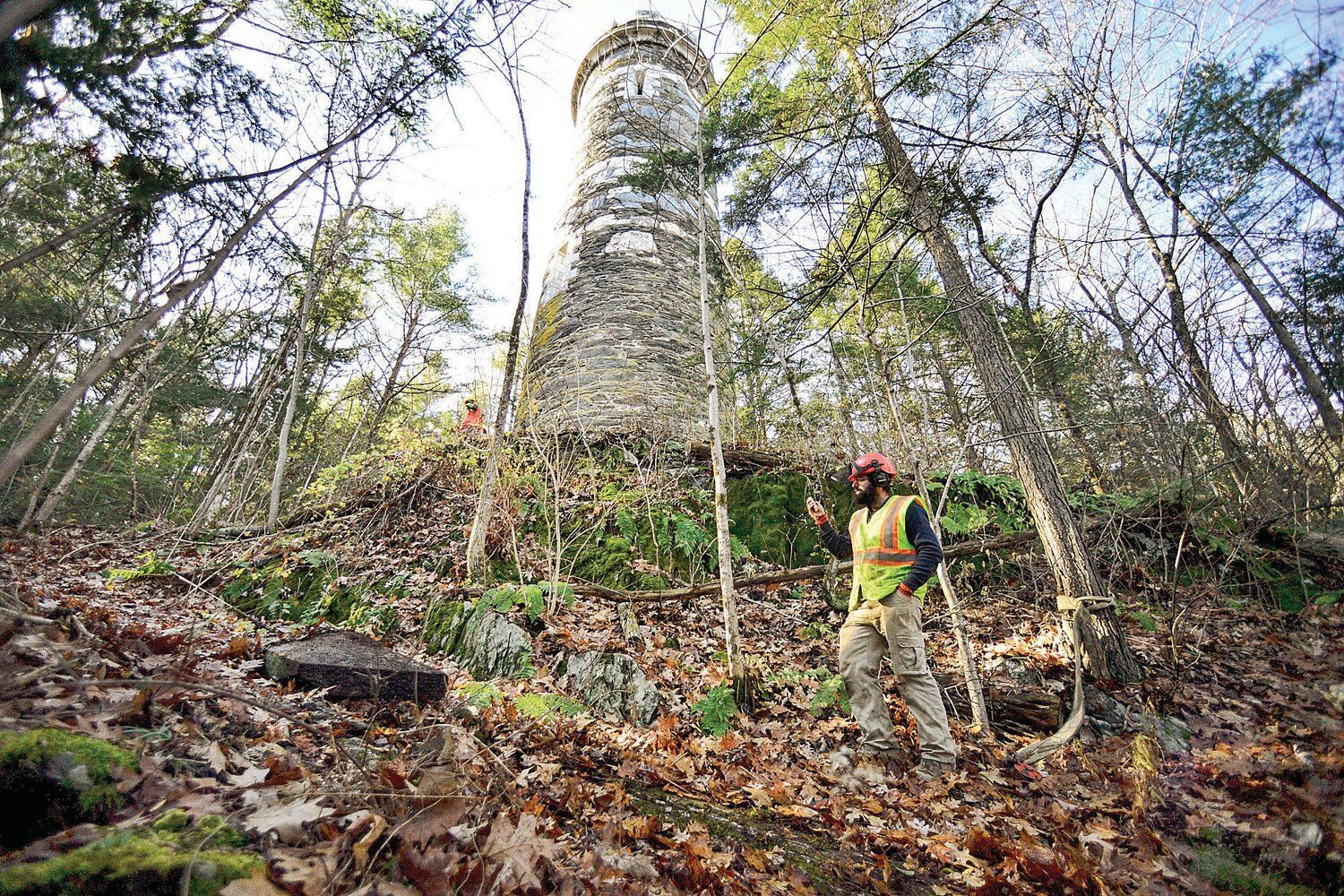No better time than 2021, an inaugural year, to visit Hildene’s ‘American Ideal’ exhibit

By Telly Halkias
MANCHESTER, Vt.
On March 4, 1865, the Civil War continued to rage in its final stages across battlefields in the South, such as the prolonged bloody affair at Petersburg, which was not to be decided for another three weeks.
On that day, President Abraham Lincoln — he was not assured of reelection in the fall of 1864, with the war hanging in the balance — stepped to the podium on the Capitol’s East Portico, to deliver what was the most significant speech of his career — his second inaugural address.
The speech has been hailed by historians as one of the great oratories of all time. Yet, with so much promise for the postbellum period ahead, 41 days later, John Wilkes Booth assassinated the president in the balcony of Ford’s Theatre in Washington.
It also is celebrated in a permanent exhibit available to the public in Manchester, at Hildene, The Lincoln Family Home.
Built as a summer home by Robert Todd Lincoln, the 16th president’s only child to reach adulthood, the mansion and 412-acre estate known as Hildene features award-winning gardens, miles of wooded trails, an observatory, preserved wetlands, and a working farm and agricultural education center — among many other attractions.
With 2021 also an inaugural year, and in after the global coronavirus pandemic year of 2020, perhaps there is no better time for visitors to Vermont, as well as locals, to stop by Hildene and familiarize themselves with how the Second Inaugural, now more than ever, speaks to the American dream.
This display, “The American Ideal: Abraham Lincoln and the Second Inaugural,” opened in September 2009. While the plan was to have it in place for a defined period, because of its popularity, the exhibit remains on display and relevant as it ever was.

It is believed the Bible, which King inscribed, was presented on March 4, 1861, the day of Lincoln’s inauguration. The Bible should not be confused with the Bible used by Lincoln at his inauguration. The Bible gifted by King remained in the Lincoln family. It is presently on display with an inscription written by Amos King and a letter from Lincoln’s secretary, John Nicolay, thanking King for the Bible.
Hildene’s president, Brian Keefe, thinks that perhaps the first stop before going anywhere else on the grounds should be the Second Inaugural, nestled on the mansion’s second floor. Keefe said that the exhibit speaks to how the past informs our lives.
“Lincoln’s address was an admission that we cannot know the future,” Keefe said recently while standing at the exhibit. “Indeed, it is nearly impossible to understand the present and the forces that lead to any one moment in time. What we can acknowledge is that no one is blameless, while continually striving for a more perfect union, ‘with malice toward none, with charity for all.’”
Standing there while hearing those words of Lincoln’s echo into the adjacent hallway can be poignant for anyone living through this time of COVID-19, as well as a long and contested presidential election in November.
Lincoln’s Second Inaugural harkens to the then-radical beliefs first enunciated in the Declaration of Independence. Worldwide, visitors have learned from the exhibit how the Civil War and Lincoln helped bring life and meaning to the promise of the American Ideal of equality, justice and opportunity for all.
“Abraham Lincoln revered the Declaration of Independence as America’s founding document and its promise of equal treatment of all people as a fundamental proposition that could be achieved over time — that must be achieved over time,” Keefe said.
This ideal, Keefe continued, seems to channel some of the president’s word’s from Gettysburg, Pa., where Lincoln had said that the Civil War would test “whether that nation, or any nation so conceived and so dedicated, can long endure.”
Busts of Thomas Jefferson, principal author of the Declaration of Independence, and Lincoln are the first items seen upon entering the room. Lincoln always looked to Jefferson for his political inspiration, Keefe noted.

All of the Second Inaugural’s words are broken into clauses to form a border around the room. The artifacts underneath them help illuminate the meaning of the clauses and include one of only two of Lincoln’s iconic stovepipe hats in existence, one of his Bibles, a life mask and a scrapbook that belonged to a supporting actress who appeared in “Our American Cousin,” the play the president was watching on the evening of his assassination. The scrapbook contains a swatch of wallpaper from his Ford’s Theatre box. Also in the exhibit is a playbill from this final performance.
It’s a solemn place, one that Keefe concluded is worth visiting to appreciate Lincoln’s deeply rooted faith, humanity and rejection of triumphalism, all in the name of national unity.
“The civic responsibility that Lincoln felt, and his fidelity to the Declaration of Independence and to the U.S. Constitution, are relevant today and worth rediscovering in our own lives and as a society,” Keefe said. “Here was a man acknowledging human failures, hoping for a better future, yet admitting humanity’s limitations.”
If you go …
Hildene, The Lincoln Family Home
1005 Hildene Road, Manchester, Vt.
800-578-1788, hildene.org
Hours: 10 a.m. to 4 p.m., Thursday through Monday
Admission: $23, adults; $6 for ages 6 to 16; free for members and children 5 and younger.
Telly Halkias is a national award-winning, independent journalist. He lives and writes from his homes in Southern Vermont and coastal Maine.
